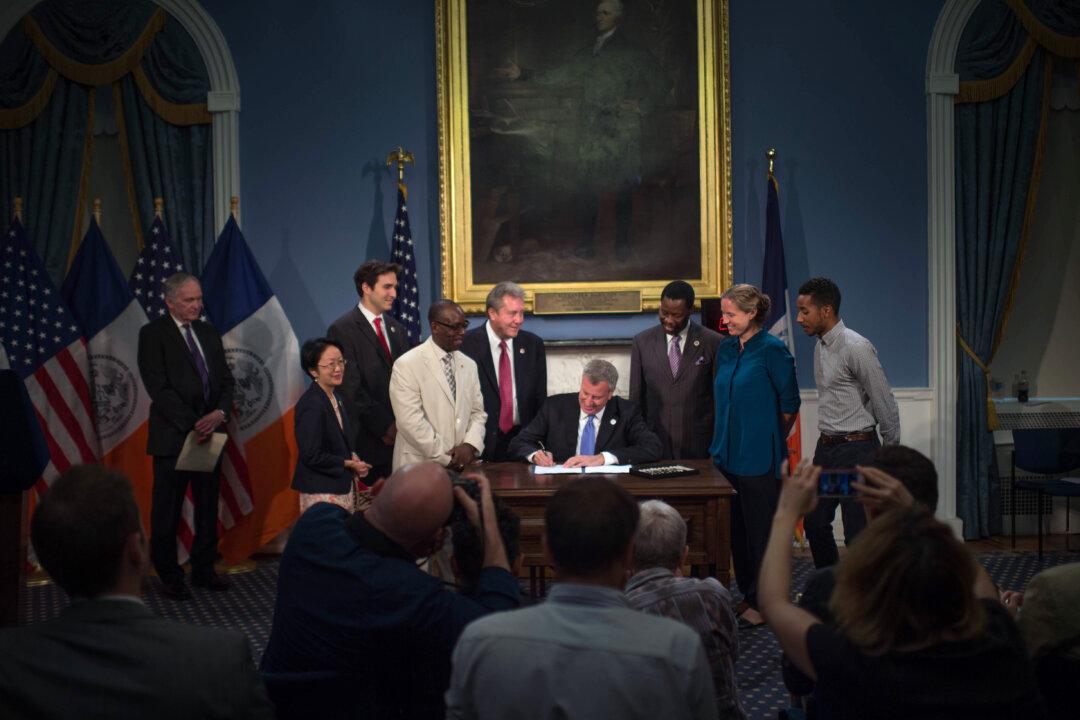Mayor Bill de Blasio signed into law on Thursday a bill that will provide transparency on who gets placed into solitary confinement in the city’s jails.
Inmates sentenced to solitary confinement typically spend 23 hours a day in isolation.
The bill’s passage comes ahead of a recently released investigative report by the U.S. Department of Justice, which revealed that adolescent detainees at the Rikers Island jail facility were consistently placed in solitary confinement for months at a time for breaking jail rules, most of which were non-violent violations.
Many inmates, about 73 percent of them, were also diagnosed as mentally ill.
The bill will now require the city Department of Correction to routinely publish data on the number of inmates they place in solitary confinement, as well as information about the conditions in which they are held, such as the length of confinement, and whether those seeking medical and mental health treatment received it.
The first data report will be published onto the correction department’s website on Jan. 20 next year.
Risk of Harm
On Thursday, the mayor highlighted the importance of the bill, adding that it will fix a system that rightfully needs changes.
He also praised the city correction commissioner Joseph Ponte for being “nationally known as a reformer.”
The commissioner said it would take some time to improve, but promised to reduce the use of solitary confinement as a disciplinary measure.
Ponte had previously served as the corrections department commissioner in Maine and is known to have significantly reduced solitary confinement there.
City council member Daniel Dromm, who introduced the bill, got emotional on Thursday as he recalled seeking help for his friend who was placed in solitary confinement in jail.
Solitary confinement exacerbates any mental illness that an inmate might have had before being placed in isolation, said JoAnne Page, president of the Fortune Society, a social servicesorganization that assists newly released inmates with adjusting to society.
“It’s worse if you’re mentally ill or you’re an adolescent. And if you’re a mentally ill adolescent, it’s the worst,” Page said in a phone interview.
During one’s teenage years, one is still figuring out who they are and can be more easily traumatized than adults, according to Page.
She noted that rates of self-injury and attempted suicide are almost seven times higher among those placed in solitary confinement than in the general inmate population.
“Many are released directly from that setting to the community. It’s very hard to cope with and can be very disorienting after such sensory deprivation while in solitary confinement,” she said.
Page applauded the new law, but hopes the use of solitary confinement can be further limited to only being used in cases where an inmate may bring imminent harm to himself or others. She also noted that currently, most of the corrections officers working with adolescents at Rikers are newly trained from the corrections academy and have high turnover rates.
“You have the most inexperienced officers working with the most vulnerable population,” she said. Instead, the officers working with adolescents should be well-compensated and well-respected positions that they aspire to work for.





